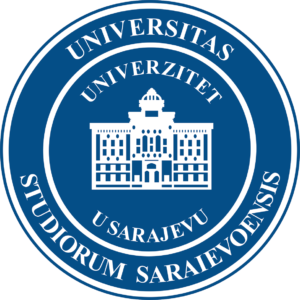University of Sarajevo
The University of Sarajevo (UNSA) is the largest higher education institution in Bosnia and Herzegovina, with over 1.300 academic staff members and 30 full member institutions. It provides a balanced range of academic and professional training, and research within social, medical, natural, and technical sciences, humanities and arts.
About the University of Sarajevo
University of Sarajevo was established in 1949, and has remained determined to continue being the leader in higher education in Bosnia and Herzegovina in terms of quality of study programmes and research, number of students and departments. We offer study programmes and research opportunities at 22 faculties, 3 art academies, 5 large scientific-research institutes, and 5 centres, with over 500 study programmes and over 200 departments, thus providing balanced range of academic and professional training and research within social, medical, natural, and technical sciences, humanities and arts. Today, having around 32,000 enrolled students with over 1200 academic/research staff, we are among the largest universities in the region.
University of Sarajevo has extensive experience in international projects within EU, regional, and national funding schemes. We have been participating in the FP programmes since the Framework Programme 5, whereas today we are the leading institution in BiH in terms of number of H2020 projects. Our researchers and academic staff are active participants of different research and HE funding schemes (such as COST, Horizon Europe, Horizon 2020, COSME, Danube Transnational Programme, Adrion Programme, Erasmus+).
The UNSA Research Service Office and Centre for R&D are continuously undertaking actions to facilitate participation of our member institutions in different international projects. We have over 500 projects currently active at UNSA 30 faculties/academies/institutes. As for the national funding schemes, the UNSA is a leading institution in BiH in receiving national research funding.
University of Sarajevo is also a member of the EURAXESS and EEN networks.
Within the University and in the framework of the RESILIENCE project two institutions are leading the acitivites: Faculty of Islamic Studies and Faculty of Catholic Theology.
Responsibilities
- Lead Beneficiary of work package 5
- Also involved in work packages 1, 2, 3, 4, 6
Meet the University of Sarajevo
Contact
